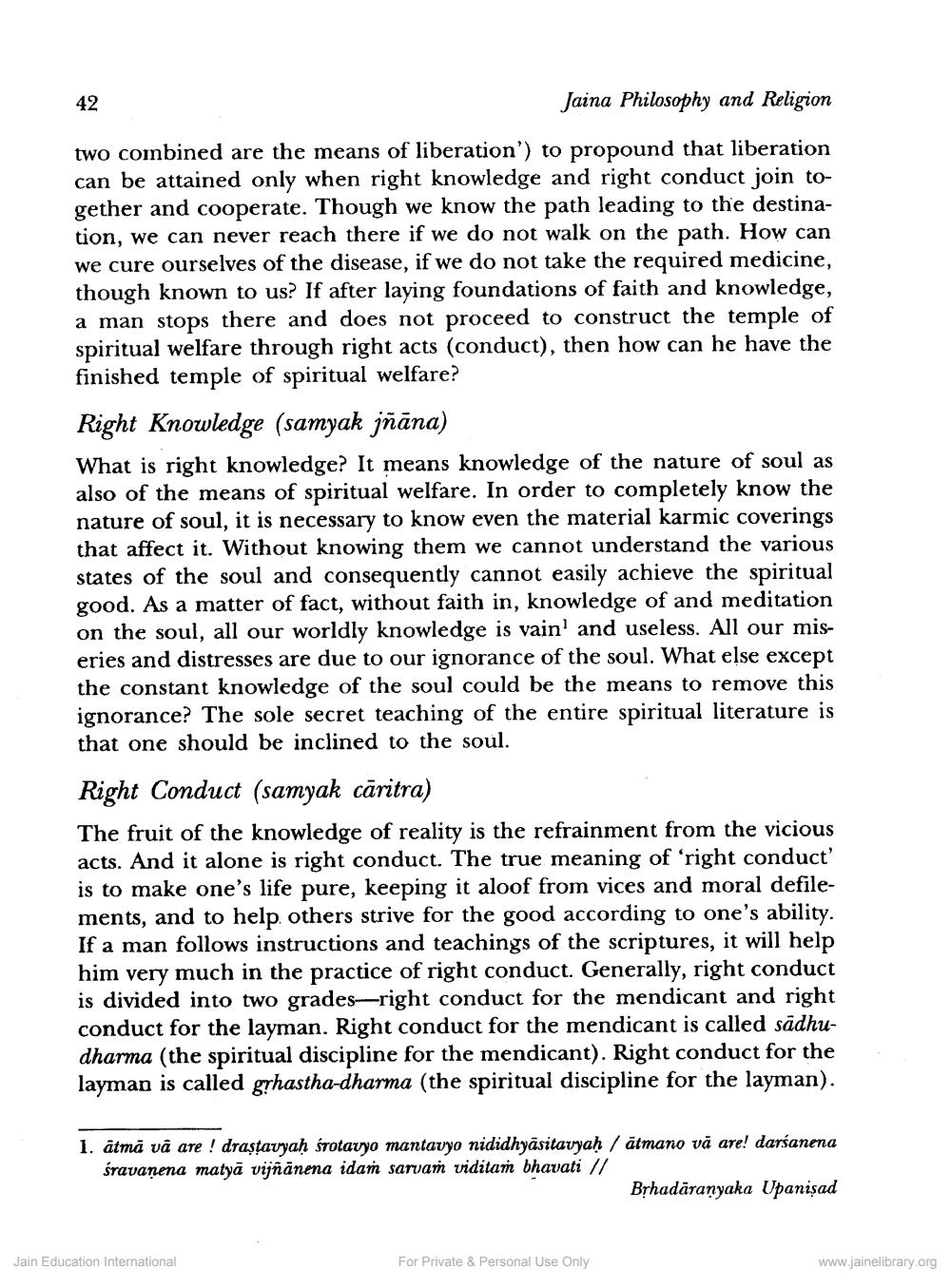________________
42
Jaina Philosophy and Religion
two combined are the means of liberation') to propound that liberation can be attained only when right knowledge and right conduct join together and cooperate. Though we know the path leading to the destination, we can never reach there if we do not walk on the path. How can we cure ourselves of the disease, if we do not take the required medicine, though known to us? If after laying foundations of faith and knowledge, a man stops there and does not proceed to construct the temple of spiritual welfare through right acts (conduct), then how can he have the finished temple of spiritual welfare?
Right Knowledge (samyak jñāna) What is right knowledge? It means knowledge of the nature of soul as also of the means of spiritual welfare. In order to completely know the nature of soul, it is necessary to know even the material karmic coverings that affect it. Without knowing them we cannot understand the various states of the soul and consequently cannot easily achieve the spiritual good. As a matter of fact, without faith in, knowledge of and meditation on the soul, all our worldly knowledge is vain' and useless. All our miseries and distresses are due to our ignorance of the soul. What else except the constant knowledge of the soul could be the means to remove this ignorance? The sole secret teaching of the entire spiritual literature is that one should be inclined to the soul.
Right Conduct (samyak caritra) The fruit of the knowledge of reality is the refrainment from the vicious acts. And it alone is right conduct. The true meaning of 'right conduct'
make one's life pure, keeping it aloof from vices and moral defilements, and to help others strive for the good according to one's ability. If a man follows instructions and teachings of the scriptures, it will help him very much in the practice of right conduct. Generally, right conduct is divided into two grades-right conduct for the mendicant and right conduct for the layman. Right conduct for the mendicant is called sädhudharma (the spiritual discipline for the mendicant). Right conduct for the layman is called grhastha-dharma (the spiritual discipline for the layman).
1. ātmā và are ! drastavyaḥ śrotavyo mantavyo nididhyāsitavyah / ātmano vă are! darśanena śravanena matyā vijñānena idam sarvas viditam bhavati //
Byhadāranyaka Upanisad
Jain Education International
For Private & Personal Use Only
www.jainelibrary.org




